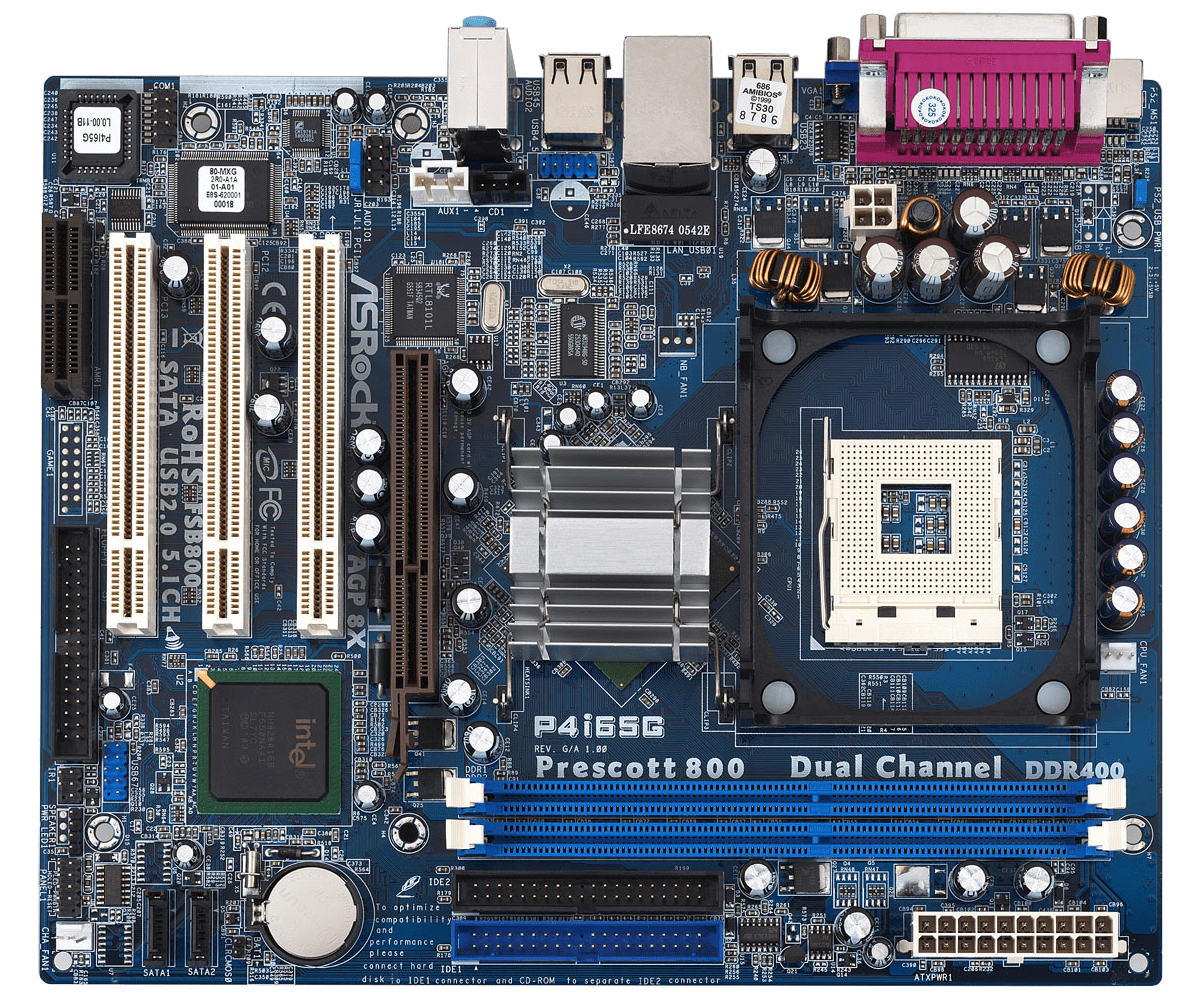Ive got an old Asrock agp8x p4i65g motherboard that has 4 16v 1200uf bulged capacitors near the cpu.When powered on the psu and cpu fan spins for less than a second and shuts off. What is the purpose of those capacitors? After replacing them all with new ones the issue still persists.Please help.




